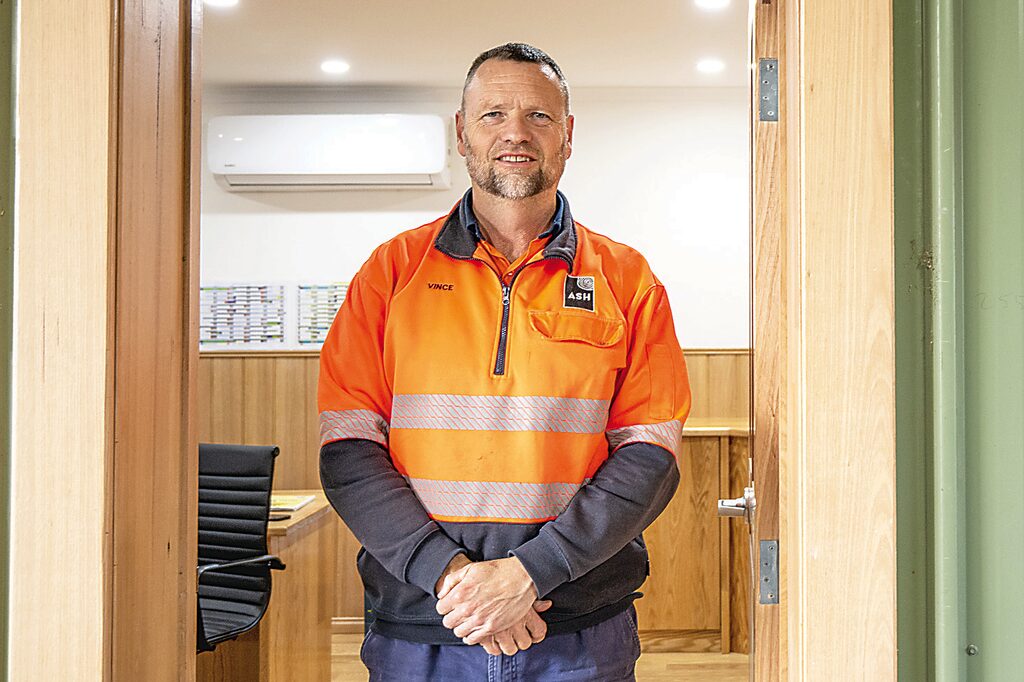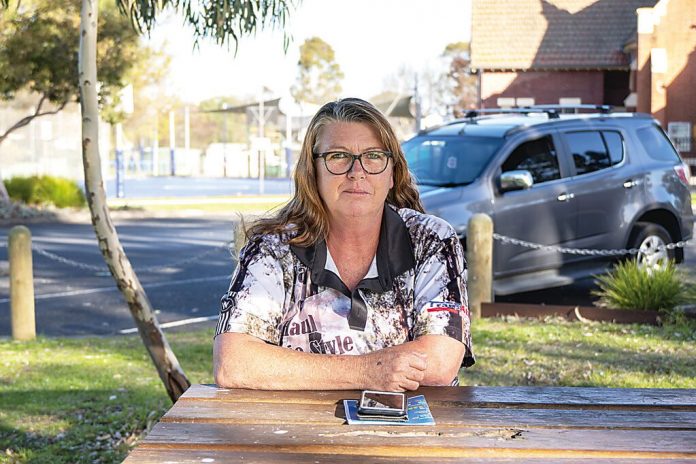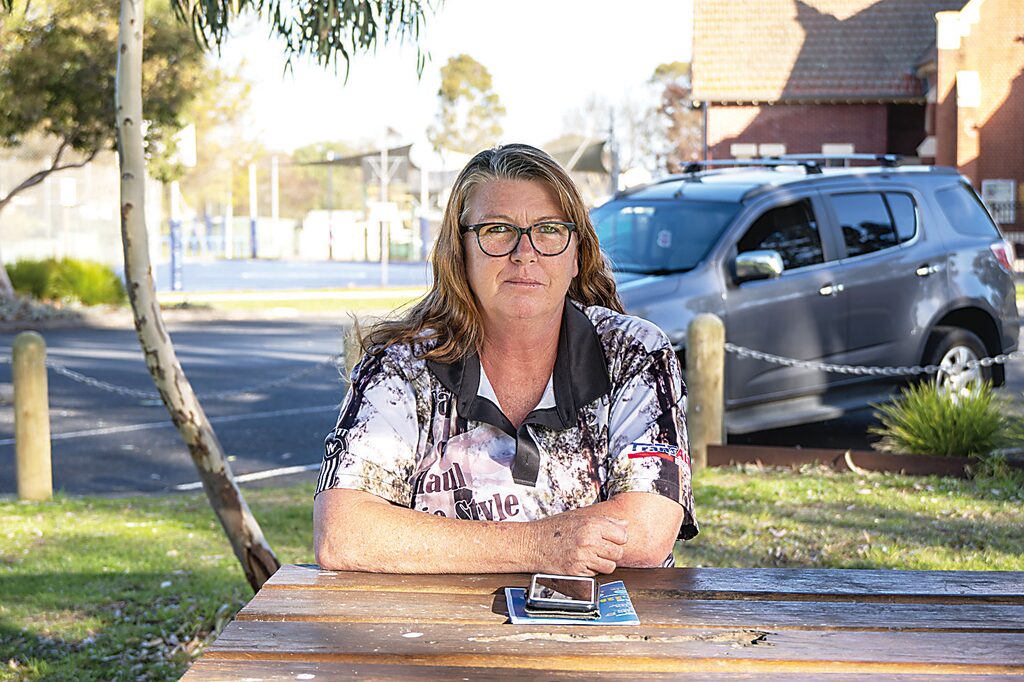ZOE ASKEW
By ZOE ASKEW
HEYFIELD is rife with anger, uncertainty, distrust, and sadness in the aftermath of the state government’s shock announcement last week to bring forward the cessation of native timber harvesting. But there is also hope. Over the last decade, the Victorian timber industry has been met with persistent hindrances, from bushfires and environmental no-logging zones to a Supreme Court ruling against VicForests’ native forest logging program, limiting the supply available for harvesting every year. In 2019, the state government announced native forest logging would be gradually phased out by 2030, immediately ceasing logging of old-growth forests under the plan to transition Victoria’s timber industry to plantation-based supply. Despite a slew of obstacles, Heyfield’s mill, Australia’s largest hardwood sawmill, and the mill’s operator, Australian Sustainable Hardwoods (ASH), has endured. ASH managing director, Vince Hurley was blindsided when the state government announced they were bringing forward the cessation of native timber logging to January 1, 2024, six years earlier than initially planned. “In 2017, we had quite a large volume reduction, and what we did, the larger shareholder he left and we took over, and we’ve really been concentrating on four main things, that is people, really important, diversify our fibre input, diversify our manufacturing capability and diversify markets and we’ve been really successful in doing that,” Mr Hurley said. “In November 2019, the government announced the progressive transition to close the industry, to close native forestry by 2030, and so we really ramped up our process, and until yesterday (Tuesday, May 23) we were working towards their plan, there was no indication the plan was going to change, that was the plan.” When the state government announced the phasing out of native forest logging in 2019, they extended existing forestry agreements until July 2024, after which native timber supply would be reduced before ending in 2030. “We thought, ‘Okay, that’s okay, we’ve got time to work progressively through to find replacements for that fibre’, and that’s what we were doing,” Mr Hurley said. “We bought a sawmill in Tasmania; we are taking a lot of plantation hardwood out of the Strzelecki’s and out of Tasmania as well, and we are also one of the largest importers of American Oak into the country as a raw product because our main game here is manufacturing. “Effectively logs turned into slabs turned into feedstock turned into a manufactured finished product, that’s where most of our employment is, including a lot of women in manufacturing.” The accelerated cessation of native timber logging has been yet another hard pill to swallow for Mr Hurley. “I did put a notice out to our employees on Monday to let them know we’ve got this,” he said. “We’ve got to control what we can control, and what that means is we’ve got to try to find more alternative fibre, that we intended to, more quickly. “My objective is to keep people’s morale up and keep people focused on what we are doing. Hope is an incredibly powerful thing, and we all have hope.” Mr Hurley is looking beyond the anger and frustration and focusing on the future, identifying the silver lining in this time of hardship and uncertainty. Still, even the most optimistic perspectives can’t shake the hurt felt by those in the state’s timber industry. “We saved the business, really, by doing what we did, by taking control, and our whole strategy has been incredibly successful, [this is] just another kick in the guts, but you can’t lay down too long; you’ve just got to get up and go,” Mr Hurley said. “If we hadn’t had our big issue in 2017 and we were still 100 per cent reliant on Vic Forests wood, you wouldn’t be speaking with me today; we’d be dead in the water. “We had a fortunate misfortune, and we always look for that silver cloud, but this is a real kick in the guts; I mean, if they said you’ve got a year, we could’ve, we really could’ve tried, like okay, we’ve got a year, lets really work hard around that, lets really work around that. “It’s not even six months; it’s today. I have spoken with Vic Forests this morning (Tuesday, May 24); they don’t have anywhere to go because of the litigation.” Among the pallet of emotions, for Mr Hurley, it always comes back to hope. “One of the things we haven’t done is really talk to the community yet, but there are 190 people who work here, most of who live in and around Heyfield,” Mr Hurley said. “We sent an SMS gateway to all the employees, so everyone got an SMS gateway on Monday about what my response was, and it was really about hope, you know, ‘Okay, this is a really bad decision, it’s not justifiable but let’s continue on our path, we’ll just have to speed it up’. “We’ve done it before; we’ve absolutely proven that we are committed.” The anger felt by those working in the timber industry has reverberated throughout the local community. Heyfield Timber Festival organiser and lifetime resident Felicia Stevenson, was out of town when she received news of the government’s shock decision to bring forward the cessation of native timber logging. “I was at my grandson’s school sports, and my husband rang me and told me, then it was email after email coming through,” Ms Stevenson said. “I was just dumbfounded like he’s [Daniel Andrews] is putting himself up on a pedal stool like ‘I’m doing this, I’m taking pressure off these families’, but he’s putting more pressure on families. “It’s not just guys and women in the [timber] industry; it’s their partners, it’s’ their kids that are suffering, not just financially, but it’s a mental strain on them, and it’s just wrong. “Kids here [in Heyfield and surrounds] their dads work in the bush, drive log trucks, work up at the timber mill, that all goes, they’re going to have to rip them out of this school and take them somewhere else, what to New South Wales, take them away from their grandparents. It’s wrong and he [Daniel Andrews] doesn’t see that. None of the greenies sees that.” One Heyfield resident who works within the community emphasised the rippling effects of last week’s timber industry announcement. “It’s not just the timber mill that is going to be affected; it is the butcher, the baker, the candlestick maker, their kids, their grandkids in small towns, and some small towns are going just to disappear,” they said. For many Heyfield residents, including Ms Stevenson, there is shared fear for when the next major fire engulfs the region. “Who is going to fight our fires?” Ms Stevenson said. “There is going to be another big fire; the question is when and where, and we aren’t going to have the dozers and the machinery and the knowledge of these guys to go and help put it out and put the road lines in. “We’re screwed.” “One thing that worries the hell out of all of us is when we have next big bushfire,” another Heyfield resident said. “All those businesses who have been put out of business, they’re the ones who went and fought the fires, who had the machinery, they’re not going to have the machinery. “They [the state government] talk about professional firefighters, our CFA guys here, they fight the fires because they want the fires to stop, but they’re not professional firefighters, they’re volunteers, and Melbourne is saying this is what you have to be, you have to be professional firefighters. “It’s a changing world, and I can’t see it’s changing in the right direction.” While there is no denying the anger, uncertainty, distrust, and sadness within Heyfield following the state government’s shock announcement last week to bring forward the cessation of native timber harvesting, the resilient community of Heyfield remain hopeful. “We make things happen in Heyfield,” one resident said. “We’re not going to fold up and die; neither is the timber mill; we are not going to let it.”












